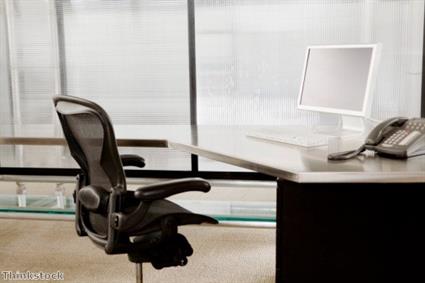We are often told that the property market in the UK is starting to pick up pace again, and that commercial and residential lets are in high demand.
However, in reality there are many office blocks around the world, including some of the most iconic and ambitious, with empty spaces littered throughout them.
The reality
To look at how the commercial property market is performing, it's important to analyse some of the most vibrant and growing business markets across the world.
In current markets, Dubai and London are hotspots for business with companies looking to get themselves addresses in areas like Canary Wharf and Palm Jumeirah, among other popular locations.
These are also areas in which residential property markets have seen something of a mammoth boost in the past few years. Dubai prices alone have jumped 20 per cent in the past 12 months according to Knight Frank, so it stands to reason that commercial properties would perform similarly when business is strong.
However, latest reports show this to not be the case. According to Knight Frank, London office vacancy rates sit at 7.2 per cent, while Dubai saw this climb as high as 45 per cent in 2012, Dubai Multi Commodities Centre reported.
So why is this the case?
Over-ambition
When skyscrapers first became popular, businesses were rushing to be associated with the highest, most attractive and most ambitious buildings to get themselves some sort of prestige.
But has this reached a breaking point? Are developers now somewhat over-ambitious?
Latest figures suggest this could be the case. The Shard in London is tallest building in the UK, for example, but far from rushing to sign up to leases, most have avoided it. A year after the iconic tower opened in July, just ten per cent of the units within are occupied.
It's a similar story in the world's tallest building, with the Burj Khalifa in Dubai having 20 per cent vacancy rates in the three years since it was completed.
Failure to be flexible
Many businesses are loath to take on contracts with commercial landlords because of the lack of flexibility in the market.
They have been burned by the recession, after which many were tied into long-term contracts for large offices they could not downsize. This pushed the cost per worker - as they downscaled staffing - as high as £4,638 in 2012, which represented a five-year high.
To attract custom, landlords should look to be more flexible, offering the chance to downsize if possible and even buy out contracts just to give peace of mind to business owners.
No incentives
The level of competition in the commercial property sector has meant that there are now more landlords offering additional services and incentives to bring people on board and keep them happy.
If you are not offering an all-singing all-dancing package that involves cleaners, maintenance staff and even things like contributions to bills, then you risk getting left behind and being faced with empty office spaces.
A sign of the times
Are your office spaces simply too big? In the modern age, it's more important than ever to move with the times, and more companies now want smaller spaces as they take on new technology.
Around two-thirds of UK firms are now looking to move to the likes of cloud computing, which means needing less space as more staff work from home.
Investors looking to get the most from their outlay need to make sure then that they are targeting the right sort of space when they are buying, and this means moving with the times and buying to match trends.
Being in a prime location
This may seem like a strange point to those who have been involved in commercial property for a number of years, but the prime location can be something of a hindrance compared to the way it used to be.
Linked to the advancements of technology and really a sign of the times, more businesses are now moving away from places like the south-east of the UK. Whereas it may have previously been vital to be situated here, they can now employ video conferences, virtual meetings and flexible working.
This means more moving away from the more expensive cities across the country, something that could mean investors needing to adapt their strategy for the modern age.

